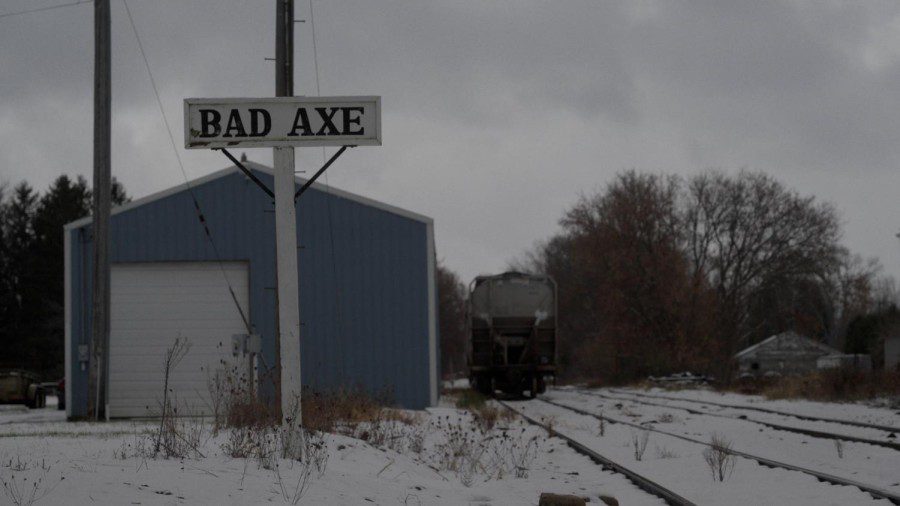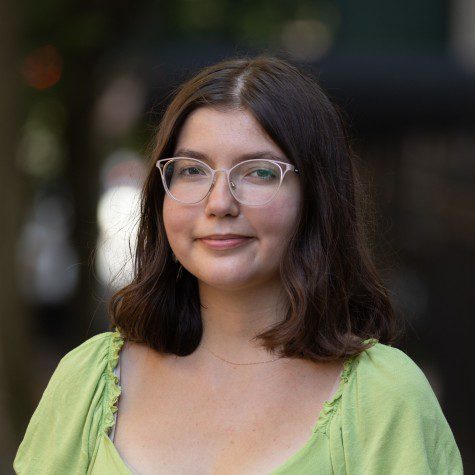Q&A: David Siev’s American dream lives on in ‘Bad Axe’
Director David Siev spoke to WSN about his newest film, restaurant communities and the American identity. “Bad Axe” will play in select theaters on Nov. 18.
November 14, 2022
David Siev’s feature directorial debut, “Bad Axe,” is a heartfelt documentary that follows his family as they struggle to run their restaurant, Rachel’s of Bad Axe, in 2020 amid the height of the pandemic. With the accompanying rise of anti-Asian sentiment, they experience racial discrimination in the rural and predominantly white community of Bad Axe, Michigan. The film premiered at the 2023 SXSW Film Festival in March, winning the Audience Award and Special Jury Recognition for Exceptional Intimacy.
After graduating from the University of Michigan, Siev, a Cambodian-Mexican American filmmaker, moved to Los Angeles to work in the film and television industry. The film explores Siev’s reflection on his dad’s experiences in Cambodia, and how he moved to Bad Axe to start a donut shop — which eventually became the beloved restaurant Rachel’s. It is a prescient tale of activism as the family stands together during the Black Lives Matter protests in their town.
WSN sat down with Siev to discuss the film’s depiction of the immigrant experience, the American dream and the power of storytelling.
This interview has been edited for length and clarity.
WSN: What made you decide to look at the immigrant experience through the lens of a restaurant?
Siev: I wanted to share my family’s story before the pandemic. My family’s story of success is the American dream story I always wanted to share. Obviously, the restaurant is a part of that, and it being a personal story, I don’t think it could have been told any other way.
WSN: What do you think it is about restaurants that bring people together?
Siev: We took restaurants for granted prior to the pandemic. When we opened back up, people began to realize that everyone needs to eat. They go to restaurants to have a meal, but it’s much more than that. It’s about a communal experience, about coming together. Especially at a place like Rachel’s, which is a pinnacle of the Bad Axe community. This is a place where people spend their birthdays and anniversaries and go on their first dates. Our restaurant is more than just a restaurant — you really get to know my family if you come in. We’re always there all the time. My mom is there greeting people at the door.
WSN: How has the documentary been received by your family and the people of Bad Axe?
Siev: My family is so proud of it and they’re so supportive. My parents are actually on the road with me right now as we’re traveling across the country to do screenings at different film festivals. I’m really grateful to see how people are resonating with our personal story in such a universal way. I don’t think that was something my parents could have ever imagined.
We actually got a chance to show the film to Bad Axe this past year. It was really a screening that we held to say thank you to the crowdfunding campaign donors. The community of Bad Axe really rallied behind this fundraising, so we held the screening as a way for them to be some of the first people to see it. There were 20 or 30 open seats at the screening that we just gave to the general public.
Many of the people that filled those open seats were skeptical, for one reason or another, but they decided to show up to the screening anyway. After the credits rolled and the lights came up, the film was really met with love from everyone in that room, including those skeptical individuals. They said, “I’m sorry for judging your family and your story before I had the chance to even watch it myself.”
To me, that’s such a learning moment, because as filmmakers, we always want to believe that films have this capacity for change. I was a bit cynical and I didn’t know if I truly believed that. But when these people came up to us afterwards and opened up their hearts and their minds to my family’s story, it was incredible. That’s the first step to change, right? Being able to speak with one another.
Since that day, support for the film has grown exponentially. People see the film is not trying to be a politically divisive propaganda piece. It’s really just telling the story of our family and our experience of going through 2020.
WSN: What lesson should viewers take from the film post-pandemic?
Siev: I want viewers to walk away being able to look at my family and see us as being as American as their own. When people think about my family, they may not think of us as what you might think to be the traditional American family. My parents were able to come to Bad Axe, Michigan, and build their American dream. All of our experiences are typical of families who come from immigrant or refugee backgrounds. I’m hoping to open up the idea of what an American family is, and having our family be very much included in that. One of my goals in making this film is to really open up what it means to be American.
WSN: Do you have any plans for the future in filmmaking?
Siev: I have so many more stories I need to tell. I don’t even know if it’s filmmaking. At the end of the day, I just classify myself as a storyteller. I have a collection of these personal stories, such as my dad and grandma immigrating to the United States, that I need to tell. I don’t know if they’ll be through film or through plays, but I hope I am fortunate enough to continue being a storyteller for as long as I can.
WSN: Do you have any advice for students who want to go into filmmaking?
Siev: Find the story that is most personal to you, that doesn’t let you sleep at night, and make sure you’re the one that tells it. At the end of the day, if it’s that personal, you are the only one that can tell it. I truly stand behind that because that’s what I did with my own film. This was a story that only I could share. It’s finding those personal stories and telling them, because if you don’t, who else is going to?
Contact Caitlyn McConnell at [email protected].
























































































































































